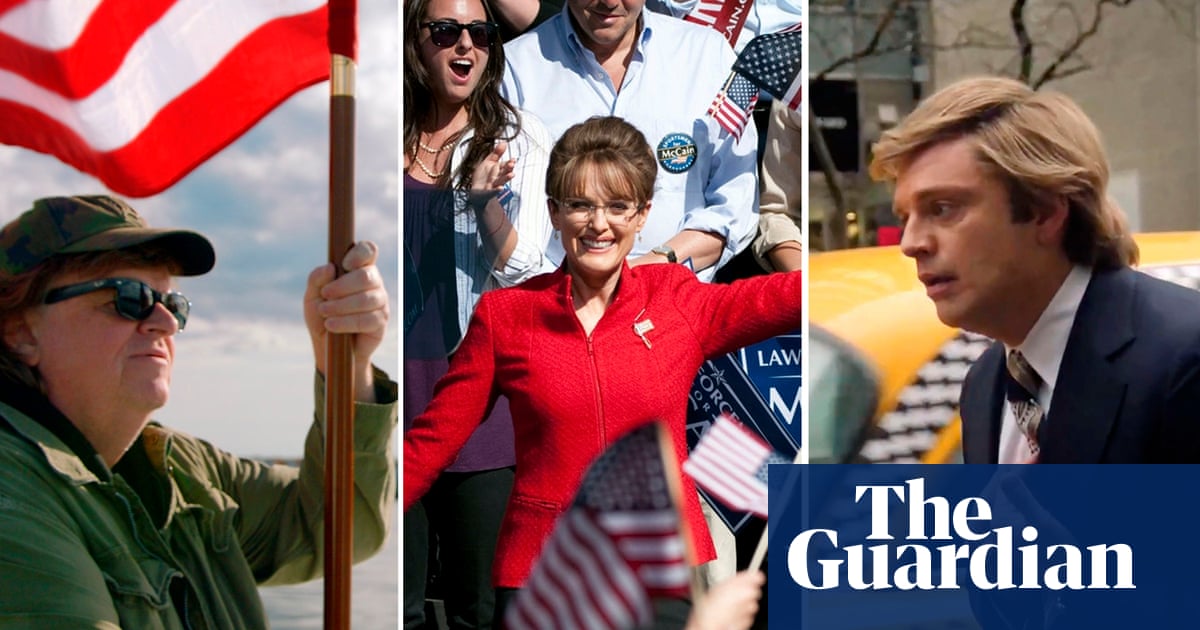âWe knew that it would be a big deal because it was coming out in an election year,â Moore says. âWe knew that it would have an impact because the country was divided. Half the country was for the war and half the country was against the war.â
Fahrenheit 9/11 went on to become the highest-grossing documentary of all time, making over $200 million worldwide. It also won the Palme d’Or at Cannes and became a rallying cry for the anti-Bush movement.
But did it swing the election in favor of John Kerry, the Democratic nominee? âWe did have an impact,â Moore insists. âIâm not saying it was the only thing that had an impact but it was one of the things that had an impact.â
Kerry lost to Bush by around three million votes in the popular vote and 35 votes in the electoral college. Moore believes that Fahrenheit 9/11 made a difference in key battleground states such as Ohio and Florida, which ultimately decided the election.
âI think that it changed the minds of enough people to tip the balance,â he says. âNot that we were the only reason that Kerry lost but we were one of the reasons.â
Moore is convinced that documentaries can play a crucial role in shaping public opinion and swaying elections. âI think that if you tell a story well and you tell the truth, you can have an impact,â he says. âI think itâs important for filmmakers to be engaged in the political process and to try to inform people and get people to think and get people to act.â
Whether The Apprentice will have a similar impact remains to be seen. But in a deeply polarized country where politics and entertainment are increasingly intertwined, it seems likely that films and TV shows will continue to play a role in shaping the outcome of elections.
” And then, the 2000 election happened and it was just such a dramatic, compelling story that needed to be told.”
Strong believes that Recount had a significant impact on the public’s understanding of the election. “I think it did have an impact because it was such a high-profile, controversial event. People were really engaged with the story and it brought to light a lot of the issues with the voting process. It made people question the system and think about the importance of every vote.”
Looking back on the film now, Strong reflects on its relevance in today’s political climate. “I think Recount is still relevant today because the issues it raises are still important. We see voter suppression, gerrymandering, and other ways in which the electoral process can be manipulated. It’s a reminder to stay vigilant and uphold the integrity of our democracy.”
Overall, these films show the power of storytelling in shaping public opinion and influencing political discourse. Whether through documentaries like Fahrenheit 9/11 or biopics like W, filmmakers have the ability to spark conversations and provoke thought on important issues in society. This has made the story of Johnson’s presidency even more relevant. Schenkkan adds, âItâs very difficult to write about politics and not have it be about the present. The point is to tell a good story but the importance of that story is going to be heightened by the context in which itâs being viewed.â
He also dismisses the idea that his work could sway an election: âI donât think anybody whoâs out there voting is going to be influenced by a movie. If they are, God help them. I think the idea is to create a conversation, to be a part of a conversation. Thatâs why we do what we do.â
For these filmmakers and writers, the goal is not to manipulate elections but to tell compelling, impactful stories that shed light on important political events and figures. The timing of their releases may coincide with election seasons, but their focus is on creating art, sparking conversation, and providing insight into the complexities of political power and decision-making. “But I do think that art has the power to shape public opinion and influence the broader political landscape. The stories we tell and the characters we portray can shine a light on important issues and spark conversations that can lead to change. Even if a single movie may not alter the outcome of an election, it can still have a lasting impact on society,” Schenkkan concludes.
“Eso sería genial.”
Abbasi agrega: “No creo que las películas cambien elecciones, en general hablando, no en India, no en Irán, no en los Estados Unidos, porque la gente tiene preocupaciones más grandes y concretas, como cosas que afectan su vida cotidiana.
Lo que quiero lograr no es cambiar la elección. Quiero lograr el cambio de mentalidad, si puedo, con la gente, porque, mira, tan peligroso como es la retórica de alienar a las personas diciendo que comen gatos y perros y son violadores y demás, tan peligroso es alienar al otro lado, tanto que la gente sienta que es legítimo dispararles, ¿sabes?”
Algunos observadores han sugerido que la película podría en realidad despertar simpatía por Trump al convertirlo en un personaje tridimensional en lugar de un villano de caricatura. “La gente sigue diciendo, oh, ustedes están humanizando demasiado”, dice Abbasi. “Yo digo, no hay tal cosa como humanizar demasiado.
Si de alguna manera puedo hacer que la gente estadounidense se dé cuenta de que no se trata de Demócratas, no se trata de Republicanos, no se trata del sistema político, se trata de todo el sistema de justicia, de la forma en que se mantiene y se manipula el poder en este país, y luego está la historia de este tipo – Roy Cohn es un tipo complicado – personas con defectos, pero aún así personas. Si puedo hacer que la gente experimente eso, entonces a quién quieran votar, eso es asunto suyo.”
